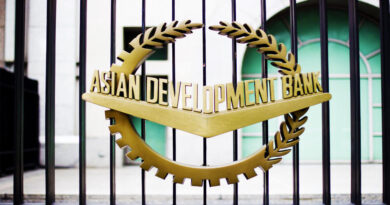EV Industry Seeks Policy Overhaul
|
Getting your Trinity Audio player ready...
|
Introduction: Growing Demand for Electric Vehicle (EV) Motorbikes in Pakistan
The electric vehicle (EV) industry in Pakistan is experiencing a significant transformation, particularly within the electric motorbike segment. As the world shifts toward cleaner and more sustainable transportation, Pakistani businesses, including EV bike assemblers and dealers, are pushing for a set of policy reforms to accelerate the adoption of new energy vehicles (NEVs). With the rising demand for electric motorcycles, industry players are calling for tax exemptions, financing support, and incentives for localisation to make EVs more accessible and affordable.
The Current State of the EV Industry in Pakistan
Pakistan’s electric vehicle market is still in its infancy, but it has seen impressive growth. Around 40 brands have already introduced their original designs for EV motorbikes, with monthly sales reaching 3,000 units. The government’s target is to increase the market share of EV bikes to 30% by 2028, which would mean the production of 500,000 units annually. However, to achieve this, there is a need for substantial policy intervention.
Key Demands from the EV Industry
Tax Exemptions and Reduced Import Duties
The foremost demand from the EV industry is tax exemptions for both manufacturers and customers. Industry stakeholders have urged the Engineering Development Board (EDB) and the federal government to offer zero or 1% import duties on Completely Knocked Down (CKD) units, as well as to abolish the high taxes ranging from 1% to 40% on various bike parts. These measures would help reduce the overall cost of EV motorbikes, making them more affordable for consumers.
Free Registration and Financing Support
Along with tax relief, the industry is also calling for free registration for new EV bike customers. This would significantly reduce the upfront costs of purchasing an electric motorcycle. Additionally, easy financing options are crucial to boosting adoption, especially in a country like Pakistan where purchasing power is limited. Making EV bikes financially accessible is key to shifting consumer behavior toward electric transportation.
Localisation to Reduce Prices and Enhance Growth
Localisation is another critical factor for the EV industry’s growth in Pakistan. Currently, prices for gasoline-powered motorcycles, such as the 125cc and 150cc models, are around Rs240,000 and Rs550,000, respectively. EV bikes, despite their modern features, are currently priced higher, which makes them less appealing to the average consumer.
Industry players suggest that a significant reduction in the duties on EV components, such as batteries and motors, would lower the cost of production. Furthermore, localisation could be ramped up in stages. In the first phase, the government should encourage manufacturers to locally produce bike frames. Over time, the goal should be to achieve 70-80% localisation, which could significantly reduce costs and promote environmental sustainability.
The Role of Research and Development (R&D) in Boosting NEV Adoption
Investing in R&D for Technological Advancements
The future of the EV industry depends not only on policy reforms but also on investments in research and development (R&D). Manufacturers such as ETURBO are already planning to invest in cutting-edge technology and machinery to produce EV bikes locally. By introducing advanced features like reverse control, Bluetooth speakers, and emergency switches, these companies are aiming to enhance the consumer experience.
R&D also plays a vital role in making EV bikes more efficient and cost-effective. For example, companies are looking into improving battery technology, which is one of the most expensive components of an EV. Localising the production of batteries, much like India has done, could further drive down costs and make EV bikes more competitive in the local market.
Government Support for Local Manufacturers
Local manufacturers of bike parts, including batteries, motors, and plastic components, also need support. One solution could be providing incentives for existing auto parts factories to produce components for EV bikes. Pakistan’s ceiling fan industry, for example, already produces motors that could be adapted for use in electric motorcycles. With the government’s backing, local manufacturers could quickly scale up production to meet the growing demand for EV bikes.
The Economic and Environmental Benefits of EV Adoption
Economic Benefits for Pakistan
The transition to electric motorcycles could provide several economic advantages for Pakistan. The local production of EV components would reduce the reliance on imports, saving valuable foreign exchange. In the long run, the government could also create jobs in the R&D, manufacturing, and service sectors of the EV industry. As demand for electric bikes increases, the associated infrastructure—such as charging stations and servicing units—will expand, further boosting the local economy.
Environmental Impact: A Step Toward a Greener Future
The environmental benefits of switching to electric vehicles are significant. NEVs contribute to reducing air pollution, which is particularly crucial during the smog-prone winter months in Pakistan. Electric bikes produce fewer emissions compared to gasoline-powered motorcycles, helping to combat climate change. Furthermore, the shift to EVs aligns with global efforts to phase out gasoline vehicles in favor of cleaner, greener transportation.
Overcoming Barriers to EV Adoption in Pakistan
Challenges Faced by Consumers and Manufacturers
Despite the potential benefits, there are several barriers that hinder the widespread adoption of electric motorbikes in Pakistan. One of the biggest challenges is the high initial cost of EV bikes compared to traditional gasoline-powered motorcycles. Although EV bikes are more economical in the long run due to lower fuel and maintenance costs, the upfront cost remains a significant deterrent for many potential buyers.
Additionally, the limited network of dealers, mechanics, and charging stations makes it difficult for consumers to embrace electric vehicles. To address these challenges, the government and private sector must collaborate to develop a robust infrastructure for EVs. This includes establishing more charging stations, training technicians, and expanding the network of authorized dealers.
Expanding the EV Market
To make the transition to electric motorbikes smoother, it is essential to focus on mass-market adoption. With proper government policies and industry support, the EV market could expand rapidly. Lowering taxes, providing financial incentives, and encouraging the localisation of components are steps in the right direction to ensure a cleaner, greener future for Pakistan.
FAQs:
- What is the current status of the EV industry in Pakistan? The EV industry in Pakistan is growing, with 40 brands introducing electric motorbikes and sales reaching 3,000 units per month. The government aims to achieve a 30% market share for EV bikes by 2028.
- What are the key demands from the EV industry in Pakistan? The EV industry is calling for tax exemptions, reduced import duties, free registration for buyers, and financing support to boost EV adoption.
- How can localisation help reduce the cost of EV motorbikes? Localising the production of bike components, such as frames, motors, and batteries, can significantly reduce production costs, making EV motorbikes more affordable for consumers.
- What environmental benefits do electric motorbikes offer? EV bikes produce fewer emissions than gasoline-powered motorcycles, contributing to cleaner air and reducing the environmental impact, particularly during smog-prone seasons.
- How can the government support the growth of the EV industry in Pakistan? The government can support the EV industry by offering tax relief, reducing import duties, providing financing options for customers, and encouraging the localisation of EV components.
SEE ALSO:
https://skipper.pk/2024/12/04/psx-record-high-trading-value-december-2024/




